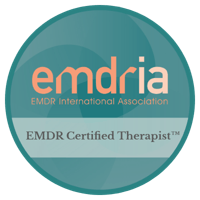When most people think about trauma and physical health, they imagine painful memories, flashbacks, or emotional struggles. But trauma does not only live in the mind—it also imprints itself on the body. Renowned psychiatrist Dr. Bessel van der Kolk writes in The Body Keeps the Score, “The body keeps the score: if the memory of trauma is encoded in the viscera, in heartbreaking and gut-wrenching emotions, in autoimmune disorders and skeletal/muscular problems… this demands a radical shift in our therapeutic assumptions.”
This quote highlights something research has confirmed over and over: trauma affects both mental and physical health. At Elnita Ottey & Associates Counseling and Consulting Services, our work focuses on understanding these deep connections so that healing addresses the whole person—mind, body, and spirit.
How Trauma Shows Up in the Body
When someone experiences trauma, the body goes into survival mode. Stress hormones like cortisol and adrenaline surge. Muscles tense. The heart races. For many people, these responses become chronic, even long after the danger has passed. Over time, the body pays a price.
Some of the most common physical manifestations of unresolved trauma include:
- Chronic pain (especially in the back, neck, and joints)
- Migraines and tension headaches
- Digestive issues such as irritable bowel syndrome (IBS)
- Autoimmune conditions like rheumatoid arthritis or lupus
- Sleep disturbances and chronic fatigue
- Cardiovascular problems, including high blood pressure
These physical symptoms show just how closely trauma and physical health are linked. The National Institute of Mental Health notes that people with post-traumatic stress disorder (PTSD) are more likely to develop physical health conditions than those without trauma histories (NIMH resource).
The Science of Stress and the Nervous System
At the core of this trauma–body connection is the nervous system. Trauma rewires the body’s fight-flight-freeze response. When the nervous system stays in “high alert,” the body never gets the chance to fully relax and restore itself.
For example, research published in Psychosomatic Medicine shows that prolonged trauma exposure is linked to inflammation markers in the blood—an underlying factor in many chronic illnesses (American Psychological Association article).
This is why traditional “talk therapy” alone is often not enough. Healing trauma requires approaches that help the body as much as the mind. At our practice, we use evidence-based therapies such as EMDR (Eye Movement Desensitization and Reprocessing) and Trauma-Focused CBT, which integrate body awareness and nervous system regulation. Learn more about our therapy services here.
Breaking Free: How Healing Happens
The good news is that the body can also learn new patterns of safety and calm. Therapy can help reset the nervous system and reduce physical symptoms. For example:
- EMDR Therapy helps the brain reprocess traumatic memories so they no longer trigger overwhelming physical responses.
- Mindfulness and breathing techniques reduce stress hormones and activate the parasympathetic (“rest and digest”) system.
- Movement practices such as yoga and somatic experiencing teach the body to release tension stored in muscles.
Studies show that trauma-informed treatments can reduce both PTSD symptoms and physical complaints (National Library of Medicine study).

Why This Matters for You
If you’ve struggled with ongoing health issues that don’t seem to have a clear medical cause, it may be worth considering the role of past experiences. Trauma doesn’t have to define your health journey. With the right support, it is possible to restore both emotional balance and physical well-being.
At Elnita Ottey & Associates, we believe in treating the whole person—because trauma and physical health are inseparable, and healing must address both mind and body. We combine research-based therapies with compassionate care so that healing can happen on every level.
💡 Elnita Ottey is an EMDRIA-certified EMDR therapist offering in-person and virtual sessions.
📍 In-person sessions available in Monroe, NC and the Charlotte, NC metro area.
🌐 Virtual sessions offered in NC, SC, TN, OK, CO, OR, and VT.
➡️ Learn more at www.elnitaottey.com or find a certified EMDR therapist near you at www.emdria.org.








